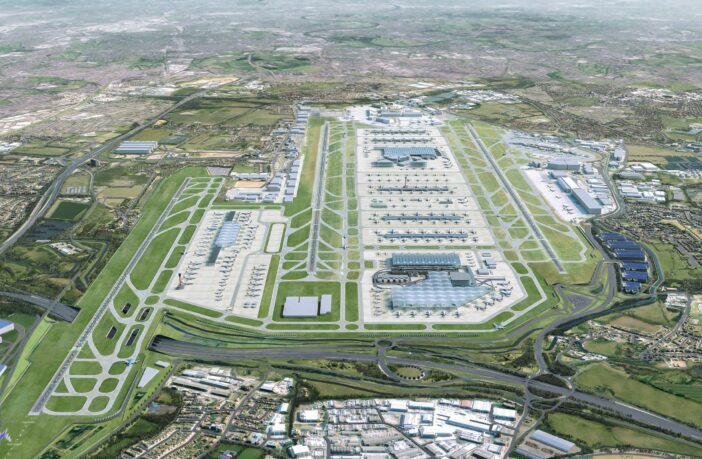Heathrow to work on future air transport concepts

London Heathrow Airport has successfully pitched two ideas to the UK government’s Innovate UK Future Flight Challenge that will give the airport the opportunity to research groundbreaking concepts that could help to reduce emissions, cut costs and make the airport more efficient as the industry works to recover from the impacts of Covid-19.
The two successful projects being researched by Heathrow are:
- Fly2Plan – This aims to study how new technologies such as cloud infrastructure and blockchain could use the airport’s data more efficiently, creating a decentralized, resilient and efficient operating model to support cross-company collaboration. The concept has the potential to unlock opportunities for new entrants, cut costs and safely allow autonomous drone operators to maximize their use of UK airspace.
- Project NAPKIN – The New Aviation Propulsion Knowledge and Innovation Network sets out to develop a blueprint that could be used to help make zero carbon aviation a reality across the UK. This idea could boost domestic connectivity and position the UK as a world leader in sustainable aviation.
The Future Flight Challenge, funded through £125m (US$175m) of government grants, has three overarching objectives: safeguarding the UK’s advantage in aerospace research and development, reducing aviation emissions and creating economic opportunities from new forms of air mobility.
Heathrow says it has kicked off the first stage of research on the concepts, which is set to continue until early 2022. The next phase will see live demonstrations of the concepts in action with a long-term aim of wider adoption across the aviation industry. The airport is working with several groups across a number of sectors to bring the projects to fruition.
John Holland-Kaye, Heathrow CEO, commented, “Heathrow has always served as a testbed for groundbreaking green technologies. These concepts go further than ever before, with the potential to transform the role that aviation plays in Britain’s economy. The Future Flight Challenge has come at a critical time for the country and our industry. We’re proud to be driving forward with these disruptive initiatives in the year that the UK hosts COP26 and our industry builds back better, as we work to recover from the devastating impacts of this pandemic.”

